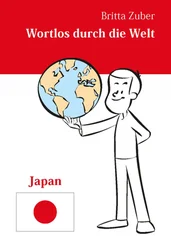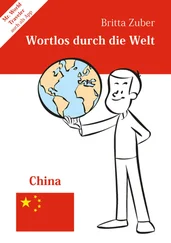“Take this!” someone yelled over the storm, holding out a shovel and motioning at some cloth that was shivering on the ground. He took the spade and saw the fabric was empty sacks, for grain or from animal feed, judging by the labels. He squatted down, rolled a bag open, prepared two more, and started filling them with sand. Eloise and Mark joined him, Mark shoveling while Eloise tied the bags together with nylon twine she cut from a large roll with a knife. Other neighbors in the chain stacked the sandbags up around the walls of the house and barn while the tractor continued digging trenches to divert as much water as possible. At the farm to the south, he could see the floodlights of other vehicles, some stationary and others moving about, and knew there was similar frantic activity there. He wondered how Michael and Beanie and his family were, and if the city was being flooded too.
The rain drenched and chilled their faces, the hurricane tore and pushed at them, the engines boomed and thrummed. He shoveled until his fingers became stiff from clutching the spade and his lungs and arms and back felt like they were on fire. When they ran out of sand, they filled the sacks with dirt dug from the trenches. The storm stank of perspiration, diesel fuel, and greasy, waterlogged soil.
Mud and water rushed and swirled into the trenches, creating miniature waterfalls at each downward sloping compartment, then filling the sections that were somewhat level, until the flooding reached to their knees and threatened to sweep away all of the trenches and sandbags. They continued to stanch the flow. When they ran out of bags, they shoveled more channels to lead the water out of those that were already full, shallow troughs that paralleled the first. The hurricane roared and shrieked and rained down with greater intensity, no longer individual gusts but as a ceaseless cascade of water. The deluge soaked every garment and every boot, rubber or not, and if it couldn’t penetrate the fabric directly, it seeped in through seams and folds to soak the middle layers and finally drench the skin. The spade handles blistered and the sandbags scoured their hands, whether they wore leather or fabric gloves, and the storm howled like every hungry ghost had been brought to raging, battering life.
It seemed like the rain would never cease, the wind never calm, and the night never end, but then, long after it should have become light, an almost imperceptible brightening of the sky above the summits in the east told them that morning was on its way. Moments later an avalanche of water mixed with pebbles and branches and plants tumbled down the hillock behind the farm. He watched the mudslide and hoped it hadn’t been strong enough to push down trees or pull fallen trunks along with it to ram the buildings or the sand walls. The swell surged across the trenches and the sandbags, before it pushed against the pale concrete foundations.
In his early teens he had gone on a class trip to a small lake to collect organisms at its narrow shore: whirligigs, water striders, bowman beetles, snails, toads, and various insect larvae clad in pebble-encrusted tubes. The edge of the lake was covered with vegetation, as thick and dense as a carpet, floating on the water and undulating with it. When he noticed that the plants were solid enough to carry his weight, he fetched a plastic box and a butterfly net, and started out on the floating world, hoping to catch something the other students couldn’t.
Unnoticed by the teacher, he moved far along the shore. With each cautious step the floating substrate rose and fell like breath, the sun warmed his face and hands, and the clamor of the others receded in the distance. Soon there was just him and the water and the sound of the tiny flies that hovered in the air. But suddenly the world shifted and he fell until the sky was just a blurry brightness above him, clouded with clumps of vegetation and the bubbles from his own surprised exhalation. The fear of being trapped beneath the plants like someone in the winter would be under ice, shot through him, but he forced himself to relax, hold his breath, and kick hard with his legs. That motion and the air still in his lungs brought him close enough to the surface to bob against the vegetation. Peering up into the brightness and feeling about with his hands, he managed to find the hole he had fallen through, and got his head above water again. From there he pushed his arms and shoulders through the opening and dragged himself up on the billowing surface, heaving and sputtering, reborn from the lake.
He returned far more carefully and humbly than he had left, the box and the net lost beneath the surface. His soaked hair and clothes gained him pointed fingers and loud laughs from his classmates and a stern talking to from the teacher. As punishment he had to shower and then rinse and laundry his clothes in the washing machine in the basement, while the other students marveled at their catches through the magnifying glasses and microscopes in the science lab.
Now he watched the flood with the same fear as when he fell through the hole in the lake, wondering when it would stop and what he should do if it didn’t. But the bags and the trenches and the foundations held, the flood slapped against them, before it bubbled and slurped back out into the trenches, and finally the last wave of mud rolled over the brown surface, into the dug furrows, and dispersed. After that less and less water arrived, the day brightened, and the rain almost stopped.
When it was clear the flood had been diverted and someone’s radio announced that the storm was finally letting up, the neighbors smiled and cheered and hugged one another.
They stood sweating and trembling inside their soaked-through rain gear, surprised that it was over, uncertain of what to do next.
“Come with us, you can sleep on our couch,” Eloise said and touched his shoulder, making him remember the cabin and wonder if it had survived. Was there anything there that couldn’t be replaced? He didn’t think so.
By foot and by truck they retreated slowly back to the farms and houses. He had no energy left for showering or cleaning, only for hanging up the wet clothing and rubbing his face and hair with a towel, then going to sleep under a large fleece blanket on a sofa that was only a little longer than the three-seater in the cabin.
In the morning there were unstifled yawns and soft padding of feet upon wooden floors and smiles at the table in the kitchen. Somewhere on the farm a generator must be going, providing heat and light, with large pots of drinking water simmering on the stove, ready to be cooled in tall clay jugs with a snippet of parsley for freshness. Breakfast was thick slices of newly defrosted whole-wheat bread, scrambled eggs and bacon, fried sausages, canned herring, pickled cucumber, home-ground mustard, sweet tea, black coffee, and glasses of cooled, boiled water. He ate like it was his last meal.
“We heard on the long-wave band that the hurricane’s hit the towns and cities further south so hard the number of dead and injured is still unclear,” Eloise said. “The roads are closed, and air and rail travel has been suspended. The phone and internet are also down and millions of homes are without power. It’s nearly a complete black-out on the whole coast.”
He closed his eyes and thought of Michael, Katsuhiro, and the rest of his family, but said nothing.
“Will you be all right?” Mark asked when he had pulled his still-moist clothes and boots back on and stood in the hallway, ready to leave. “Do you need help with the cabin?”
“I’ll be fine,” he said, convinced that he would be.
“We’ll come by and help you clean up as fast as we can,” Eloise said. “We just need to see to the youngest children first.”
“Thank you,” he said and did not insist on being alone.
Читать дальше












